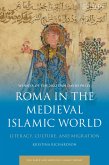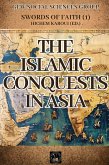By analyzing primary sources, such as the works of Ibn al-Qalanisi, Ibn al-Athir, Baha al-Din Ibn Shaddad, and Imad al-Din al-Isfahani, this research delves into how Muslim chroniclers constructed narratives of loss, resistance, and eventual triumph. Central to these narratives is the theme of jihad, which evolved from a general concept of struggle to an urgent communal obligation in response to the Crusader invasions. Figures such as Nur al-Din and Saladin epitomized this reimagined jihad, intertwining military campaigns with religious renewal and public welfare. The study further examines how religious scholars and mystics, including al-Ghazali and Ibn Asakir, reinforced the theological foundations of resistance, emphasizing unity, repentance, and moral reform.
In addition to military and theological responses, this study highlights the economic, cultural, and intellectual impacts of the Crusades. Despite the devastation of key cities such as Jerusalem and Antioch, the Islamic world demonstrated resilience through the expansion of trade, fortification of cities, and the flourishing of religious institutions. The interactions between Muslim and Crusader societies, though often marked by violence, also facilitated moments of cultural exchange, particularly in medicine, architecture, and military technology. Sufi orders provided spiritual solace to war-torn communities, reframing the Crusades as both a material and metaphysical struggle.
The study concludes by examining the enduring legacy of the Crusades in Islamic historiography and political thought. The memory of the Crusades persisted as a cautionary tale about the dangers of disunity and a symbol of resilience and justice. During the Ottoman era and the colonial period, the Crusades were invoked in political rhetoric to frame contemporary conflicts as continuations of historical struggles. By contextualizing these narratives within their historical frameworks, this research offers a comprehensive understanding of how the Crusades shaped, and were shaped by, the Islamic world's evolving identity and responses to external aggression.
Ultimately, this work underscores the importance of Islamic historiography in reconstructing a balanced and multifaceted view of the Crusades and highlights the enduring relevance of this historical episode in shaping modern interfaith and geopolitical discourses.
Dieser Download kann aus rechtlichen Gründen nur mit Rechnungsadresse in A, B, CY, CZ, D, DK, EW, E, FIN, F, GR, H, IRL, I, LT, L, LR, M, NL, PL, P, R, S, SLO, SK ausgeliefert werden.









